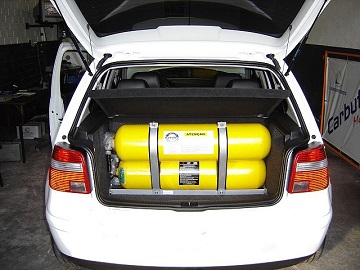CNG Cars: The Future of Sustainable Transportation in Nigeria

Automobile experts have touted the benefits of Compressed Natural Gas (CNG) cars, claiming they offer significant savings in maintenance and running expenses. These experts assert that using CNG in cars can reduce maintenance costs by up to 70% compared to petrol-powered cars.
Beyond its economic advantages, CNG is also environmentally friendly, improving engine performance, and extending engine life. However, the high initial cost of conversion has deterred some potential users.
Mr Bayero Farah, Director-General of the Nigerian Institute of Transport Technology, underlined the benefits of using CNG cars over petrol-powered ones. Farah explained that CNG would have stable pricing due to its domestic nature, and would produce fewer emissions than petrol and diesel. However, he noted that the availability of refilling stations was not encouraging.
Oseni Suleiman, National President of the Amalgamated Union of Motor Mechanics and Technicians, echoed these sentiments and highlighted the advantages of CNG cars, including their lower maintenance costs, safer storage, and minimal risks of fire and explosion.
Car dealers like Julius David of Prince Autosin Abuja have also noticed an increasing demand for CNG vehicles among their customers, indicating a growing awareness of their benefits. David highlighted the unpredictability of the petrol market as a key factor behind this demand, as CNG offers a more stable and cost-effective alternative.
While the initial investment in converting a petrol car to CNG may be high, experts believe that the long-term benefits outweigh the initial costs, particularly in terms of savings on maintenance and fuel.
Another critical factor to consider is the sustainability aspect of CNG. Nigeria is blessed with abundant natural gas resources, which means that investing in CNG-powered vehicles would not only reduce the country’s dependence on imported petrol but also promote a greener transportation system.
However, for CNG to be a viable alternative to petrol, there must be an expansion of refilling stations nationwide, and more Nigerian artisans should be trained to convert petrol-powered cars to CNG-powered ones. This would not only create jobs but also support the development of a more sustainable and resilient transportation system.
The transition to CNG-powered vehicles in Nigeria could also have significant implications for the economy and the environment. By shifting away from imported petrol and towards domestically produced natural gas, the country could reduce its reliance on foreign energy sources and boost local economic development.
Furthermore, adopting CNG vehicles could significantly reduce Nigeria’s greenhouse gas emissions, contributing to the global effort to combat climate change. This, in turn, could lead to improved air quality and public health outcomes.
References and citations:
- PUNCH – CNG saves 70% in vehicle maintenance – experts
- TheNation – CNG: FG rolls out 10,000 kits across Lagos Ogun, Kaduna
- Thisdaylive – Enviable transport on valves CNG tricycle to ease financial burden






